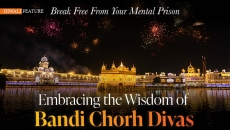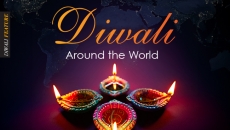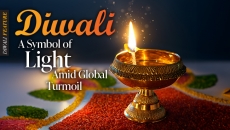Diwali, the festival of lights, is just around the corner. While everyone is already in the festive mood, shopping for their Diwali outfits and redecorating their homes, how we celebrate Diwali has evolved. When you think about Diwali, one of the first things that often comes to mind is how we celebrated it when we were younger. From starting the day with an oil bath and wearing new clothes to bursting crackers, enjoying hearty meals, inviting relatives and friends over, exchanging gifts, and hosting parties—the grand celebrations have changed over the years.
While the enthusiasm to celebrate Diwali in the best way possible remains unchanged, many ancient Diwali rituals have faded away, lost in the hustle of modern life. These traditions, steeped in regional, cultural, and spiritual significance, offer a glimpse into the more intricate, intimate, and community-driven aspects of Diwali. Listed here are some of the ancient traditions that have gradually faded into the background.
Uncommon Pujas & Lesser-Known Rituals

While Lakshmi Puja is widely performed during Diwali, many lesser-known rituals dedicated to other deities have faded over time. In West Bengal, Kali Puja, once essential for driving away negative energies before welcoming prosperity, has become less common, though some still observe it.
In Tamil Nadu, families traditionally performed Govardhan Puja, worshipping an earthen mound symbolizing Mount Govardhan. This ritual has mostly disappeared and has now been overshadowed by other Diwali customs.
Similarly, Vishwakarma Puja, a tribute to the divine architect, was once central in artisan communities to bless tools and instruments. Today, it is mainly limited to industrial settings and is far less prevalent among traditional artisans.
Traditional Folk Songs and Community Gatherings

Folk songs, in general, have played a significant role in Indian culture, and Diwali was no different. In ancient times, Diwali was marked by communal gatherings where ‘Diwali Geet’ were sung to praise deities like Lakshmi, accompanied by instruments like the dholak or mridangam.
In Maharashtra, Diwali Pahat featured early morning concerts, fostering community spirit, but such events are now rare, replaced by modern entertainment. Similarly, in Gujarat and Rajasthan, the traditional slower-paced Diwali Garba dance has shifted towards Bollywood music, moving away from its original songs.
Traditional Games: Gambling with Cowrie Shells

One of the first things that strikes us when we say Diwali is card parties. While card games have become a popular Diwali tradition, particularly in northern India, ancient Diwali celebrations were marked by simpler, more culturally significant games. In many regions, instead of playing cards, people played games of chance with cowrie shells.
In states like Gujarat and Madhya Pradesh, playing with cowrie shells during Diwali was a symbolic practice representing life's unpredictability and fate's role in human affairs. Players would toss shells, predicting their outcome, which was a way of seeking divine blessings for wealth and prosperity. Over time, card games involving money have overshadowed this ancient tradition, leading to the decline of this sacred form of gaming.
The Changing Food Traditions

What’s Diwali without sweets and savories? Although the festival of lights is synonymous with mithais and namkeen, many regions have unique culinary customs that do not necessarily revolve around sweets.
In Kerala and parts of Karnataka, simple, healthy meals were traditionally prepared during Diwali, avoiding rich, decadent sweets. Unique rice dishes, lentil soups, and vegetable curries were the focus, with sattvic food believed to cleanse the body and mind.
In Rajasthan, some families avoided sweets during Diwali, viewing it as a time for introspection and reserving sweets for New Year celebrations. Today, however, Diwali is all about indulging in sweets and savories.
Lighting Earthen Lamps in Sacred Groves

Another tradition that is being largely forgotten is lighting earthen diyas in sacred groves, known as ‘devrai’ in Maharashtra. These groves were considered the abode of local deities, and lighting lamps were believed to invoke their blessings for a bountiful harvest and protection from calamities. This practice, which connected people with nature and their spiritual surroundings, has faded mainly due to urbanization and the destruction of these sacred groves. However, today, most people light diyas in their homes.

As we celebrate Diwali this year with fireworks, sweets, and lights, it is worth pausing to reflect on the rich tapestry of traditions that have faded away. These ancient rituals offered a deeper spiritual connection and fostered community bonding, environmental awareness, and a balanced approach to life’s celebrations.






